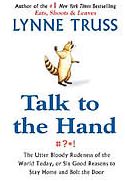 A friend of mine, Tamy Davis, has just finished her new third grade grammar book, Growing with Grammar, the first in what will be a series. Homeschoolers, especially secular homeschoolers in search of a rigorous grammar program, will be delighted.
A friend of mine, Tamy Davis, has just finished her new third grade grammar book, Growing with Grammar, the first in what will be a series. Homeschoolers, especially secular homeschoolers in search of a rigorous grammar program, will be delighted.Since we were lucky enough to be part of the test group, we've been using the program now for about a month. I, and others who've already started using the program, have shared our thoughts on it here, in a testimonial at the GWG website, and here, in a review at The Denim Jumper.
The timing of the test group couldn't have been better. Laura had been working in Rod & Staff's Beginning Wisely grammar program since September. While grammar is one of her favorite subjects, she was beginning to balk at the the unending religious references, even when we changed names to brothers, aunts, favorite dolls, and book and movie characters. I had thought that we could work with R&S knowing that it was religious but not proselytizing. I had hoped that we could, because I really want something thorough for the kids.
Tamy saved our bacon. I had hoped secretly in my heart that GWG would be "as good as" R&S's highly touted (even by secular hs'ers) program. Guess what? It's better, yes, better. This, aside from the secular aspect -- which means it can be used by families of any faith or no faith -- is why:
-- it doesn't involve a lot of writing, which is especially nice for reluctant writers. But the exercises are incredibly thorough, and include a lot of review of previously covered material (and each exercise contains references to the original lesson in the manual, so you or your child can go back for more review if necessary). In fact, the 230-page workbook is just seven pages shorter than the manual. How's that for thorough? But it's fun, sort of like a Mad Libs book but educational and not disjointed or overly silly. The student exercises are a combination of rewriting sentences as well as underlining, checking or circling the right answer, and completing sentences with a few extra words.
-- both the manual and workbook are spiral-bound, so they lie flat on the table. Why should something so small make me so happy? Because books that flop shut of their own volition despite your best efforts do not make for extended, happy, learning periods. And the spiral-bound workbook is bound at the top, which makes it very nice if you have a lefty. I have a lefty and two righties, so this is much appreciated.
-- there's no teacher's guide, because one isn't needed. Just the manual, which you read through with your child, and the student workbooks. Very nice to get your budding grammarian doing more independent work.
I'll give Laura the last word: "I like that the activity pages [workbook] are fun, I can work on them by myself, and it's about kids like me and families like mine." And she's getting a solid foundation in third grade grammar. Sold!


